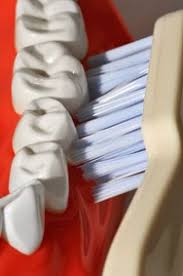There are many ways to treat periodontal disease (or gum disease). Depending on the severity of your condition, you may require one or more treatments. For many, surgery will not be necessary, and the road to recovery begins with behavioral changes.
Behavioural Changes
Perhaps, over the course of your life, you have maintained poor brushing or flossing habits. You may have an active sweet tooth, or be a frequent user of tobacco or alcohol. Be prepared to give us a full account of the behaviours that may have had contributed to your gum disease. That way, we can determine the impact of these behaviours, and work with you on implementing more orally hygienic practices into your daily routine.
In-Office Cleaning and Evaluation
Calcified plaque, or tartar, cannot be dealt with at home. The bacteria glued to your teeth can help cause or exacerbate gum disease. Come see usfor an evaluation of your gum disease, and schedule routine appointments to keep your tooth tartar under control.
Therapy
If the behavioral changes and tartar removal have been successful and your gum disease is under control, it may be necessary to begin Occlusal (or Bite) Therapy. This will help to correct any tooth placement or loss issues that may have occurred as a result of gum disease.
Surgical Treatment
If we determine that your gum disease has progressed such that behavioral changes and tartar removal are not sufficient in treatment, we may deem surgery necessary. We will use local anesthetic to address problems, both functional and aesthetic, and fill in any missing teeth with implants.
Avoid further progression of your gum disease and begin treatment as soon as possible – the sooner you start, the less problems you’ll have with your teeth and gums in the future. Contact Morrin Dental today to set up an appointment.
To comply with the AHPRA Legislation we are required to advise that “Any surgical or invasive procedure carries risks. Before proceeding, you should seek a second opinion from an appropriately qualified health practitioner.”
